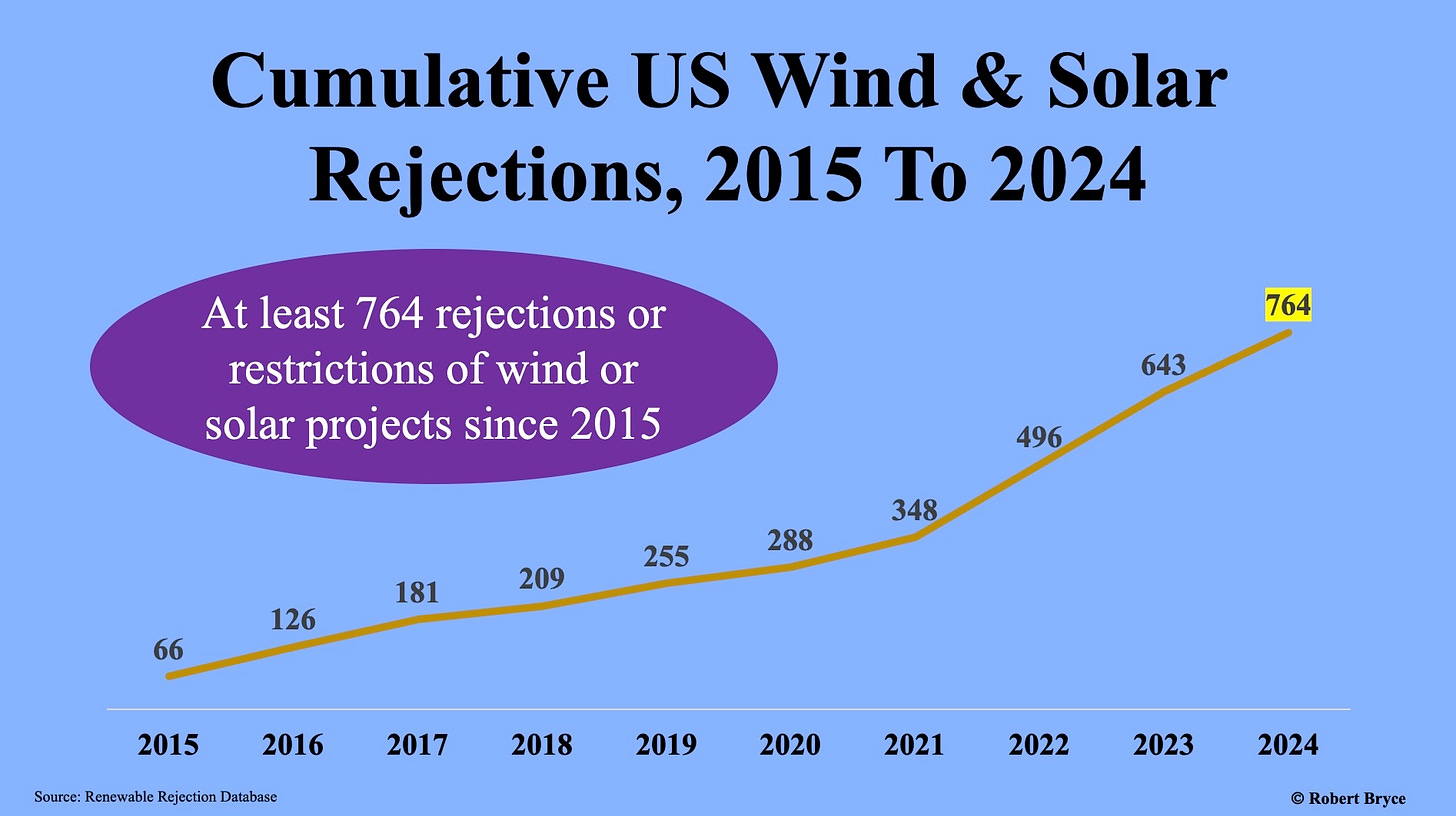Big Wind & Big Solar Are Trying To Sue Rural America Into Submission
In pursuit of massive federal subsidies, alt-energy companies, including a subsidiary of oil giant Shell, are suing rural communities to force them to accept solar and wind projects they don’t want.

In 2017, I talked to K. Darlene Park, a resident of Frostburg, Maryland, who was leading a fight against a proposed wind project in her neighborhood. She told me, “We feel this renewable energy push is an attack on rural America.”
The fight in Maryland is one of hundreds happening across the country. The Renewable Rejection Database now includes 764 rejections or restrictions of wind and solar projects since 2015. Among the latest examples came last November. On Election Day in Harpswell, Maine, a heavily Democratic electorate overwhelmingly rejected a proposed five-acre solar project. The vote against the project was 2,344 to 1,393, or 63% to 37%. That’s a decisive vote, particularly in a town that voted heavily for Kamala Harris over Donald Trump.
As reported on November 6 by J.W. Oliver, the editor of the Harpswell Anchor, “Harpswell voters cast 2,351 ballots for Vice President Kamala Harris to 1,458 for former President Donald Trump.” Thus, in Harpswell, citizens voted against solar by roughly the same margin that they voted for Kamala Harris.
The vote in Harpswell was one of 79 rejections or restrictions of solar energy in the US last year and 42 rejections or restrictions of wind energy. The raging backlash against Big Solar and Big Wind has led to a predictable — and unfortunate — response from the corporations aiming to build alt-energy projects in rural America: they are trying to sue rural communities into submission.
Over the past three years, Big Solar and Big Wind companies, including outfits backed or owned by investors from Canada, South Korea, Portugal, Britain, and Japan, have filed at least nine lawsuits against rural communities in the US.

Why are they doing it? The answer is obvious: Under the Inflation Reduction Act, hundreds of billions of dollars in federal subsidies are available to the companies that can build alt-energy projects. As I reported a few days ago in “Here’s The Real Hockey Stick,” the value of the investment tax credit and production tax credit, which are fueling the expansion of solar and wind projects, could total $421 billion between now and 2034.
Rural communities are standing between those companies and massive amounts of federal tax credits. So Big Solar and Big Wind are taking them to court.
Of course, these hardball legal tactics don’t fit the narrative pushed by climate activists, academics, and their many allies who work for legacy media outlets. Those people frequently claim rural opposition to solar and wind is being stoked by money from the hydrocarbon sector. That’s an amusing claim, particularly given that Savion, a subsidiary of the London-based oil giant Shell (2023 revenue: $317 billion), sued Decatur Township, Michigan, as part of an effort to force the town to accept a solar project.
Here’s a rundown of the legal assault on rural America. Let’s start with Shell, whose actions in Decatur Township show how Big Oil is posing as Big Solar in the pursuit of Big Subsidies.



